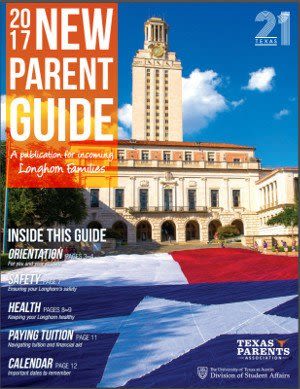With alumni giving rates in decline, advancement offices must identify new donor segments to cover their fundraising shortfalls. To that end, more and more schools are turning their attention to an often-overlooked constituency: parents.
Parents are an ideal donor pool for higher education institutions. You know they’ve already bought in to your school’s mission and have a strong vested interest in their child’s experience and success.
But parents are not like every other donor segment. They’ve already made an investment in your institution, and may feel that their tuition fees (sometimes substantial) are enough. Advancement offices need to adjust their approach to cultivating them as donors accordingly and focus on the cares and concerns unique to them.
In this post, we'll cover some of the best ways to engage parents in your fundraising efforts and keep them invested in your institution's success throughout their child's academic career … and beyond.
Engage Parents Early
One thing that distinguishes parents from other donor segments is the smaller window for cultivation and engagement.
The good news is that they’re already primed to learn about what your school offers their child and what it needs to succeed. The bad news is that their affiliation usually only lasts as long as their child’s enrollment. You need to act fast to bring them into the fold and get them engaged.
Parental interest in your institution is generally highest in their child’s freshman year, when they’re most excited about their child’s university experience. You should connect with them as early as possible — ideally, before their child even sets foot on campus.
Your school likely has a department that’s responsible for new student orientation, but many universities also provide parent-specific orientation. The University of Waterloo holds family orientation sessions ahead of the start of each school year. The University of Texas mails a New Parent Guide to all parents of incoming students as soon as enrollment is confirmed.

Advancement offices should develop their own approach to engaging parents during this early period. Lafayette College in Syracuse, NY uses a comprehensive research process to identify qualified parent prospect. They collect enrollment information from the Admissions Office, cross-reference the data with details from the Financial Aid Office, and segment their prospect list based on different criteria. This approach allows them to tailor their communications with parents according to each group's abilities, concerns and interests.
When you communicate with parents, be sure to highlight the impact of student services and resources in areas that important to them, like career development, health and wellness, and campus life. That will make it easier for them to connect the value of your institution to their child’s success beyond mere academics.
Host Parent-Focused Events
In our post on annual giving stewardship, we talked about the importance of in-person events in building a strong relationship with donors. The same is true of your parent population.
Most colleges and universities host Parent and Family Weekends for their students and families to showcase their campus and put a friendly face on their institutions. McGill University had nearly 4000 parents registered for their annual Parents Tent, a three-day event for parents of first-year students to learn about campus services and to connect with other McGill families.
Outside of campus-wide events, smaller events organized specifically for parents create a feeling of community and shared interest. And they don’t have to be elaborate. Small receptions, or program-specific events are an excellent way to engage parents in a more intimate setting.
These events don’t need to be on the university campus — or even in the same city. When Northeastern University in Boston expanded their Parent Giving Program to include regional programs, they recruited engaged parents in other cities to host an event for parents in their area.
Parent-focused events allow parents to meet and network with other parents, and build an affinity through their shared interest in their children’s success.
Ask Parents to Volunteer
While most parents may be accustomed to fundraising pitches, they’ll almost certainly appreciate being engaged in more meaningful ways than just a request for money.
Substantive volunteer opportunities are important for fostering the relationship between parents and your institution. Many schools have Parent Associations or Parent Committees that offer parents a way to get involved more directly with university initiatives, often as unofficial ambassadors for the school.
With access to your institution’s leadership team, Parent Committees can make parents feel more like stakeholders and partners who have a say in shaping the university’s direction and activities. Membership is usually by application, and making it exclusive increases the prestige of serving in this way. Strong Parent Committees also send a signal to prospective parent donors that your institution values their participation and understands that their concerns go beyond academic curricula.
Some schools, like Duke University and Cornell University, tie Parent Committee membership to parent philanthropy, and emphasize the importance of financial support to enhancing the student experience at the school.
The advantage of having parents liaise with other parents and advocate for your institution is huge. Prospective parent donors are more likely to respond to a message when it comes from someone like themselves, whose interest in their child’s success is unimpeachable. In addition, the parent-to-parent interaction paves the way for future peer-to-peer fundraising when it comes to soliciting parent gifts.
Create Specific Opportunities for Parent Giving
While Parent and Family programs have been on the rise in the past 10 years, the 2015 National Parent Program Survey found that only 29% of higher-education institutions run their Parent/Family program out of their advancement office.
Rather than targeting parents with mass solicitations for annual giving, create specific programs for parent giving, and tailor your messages to highlight impact.
A dedicated Parent Fund is an excellent vehicle for encouraging parent and family giving. The University of Virginia uses its UVA Parents Fund page to highlight specific impacts of its grants to student activities:

Georgia Tech’s Parent Fund for Student Life and Leadership specifically targets areas that impact student life on campus — from food and clothing to professional development activities.
Princeton University includes a dedicated Parents Fund as a component of its annual giving campaign. Their Parents Fund page highlights the fact that unrestricted gifts to the Parents Fund allow Princeton to help less-fortunate students cover gaps in financing.
For the smaller number of high-net worth parents, you should share your major gift roadmap with them early, and pave the way for a larger gift towards the end of their child’s senior year. While not as common, a major gift can have benefits well beyond the four-year trajectory of a student’s academic career.
Dartmouth College developed the Arc of Family Giving model to solicit top-rated parents for structured gifts of increasing value over multiple years — culminating in a senior year capstone gift.

By the end of 2014, the Arc of Giving model had contributed to $3.4 million in unrestricted gifts to the Dartmouth College Parents Fund.
Parents: Your Secret Weapon in Annual Giving
Parents represent an ideal donor pool for your institution’s fundraising efforts. Their solicitation cycles are shorter than those of alumni donors, and their interest is personal.
Best of all, engaging parents in institutional giving often leads to higher student engagement — which predicts higher engagement as alumni.
However, your efforts to engage them must recognize their values and concerns when it comes to your institution. By showing the impact of their gifts on the student experience beyond the classroom, you can make them your allies — and your advocates.
Whether you already have a strong parent giving program, or are just getting one off the ground, you can’t afford to ignore this powerful constituency. Approach them the right way and at the right time, and you’ll be able to count on them for support in more ways than one — and for years to come.
